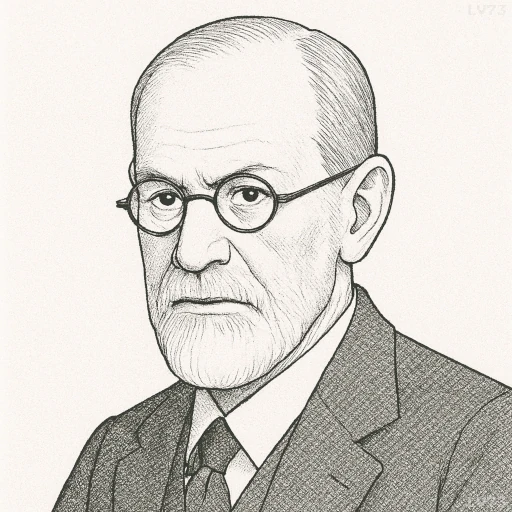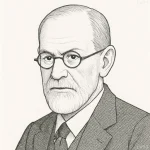“Where id was, there ego shall be.”

- May 6, 1856 – September 23, 1939
- Austrian
- Neurologist, Founder of Psychoanalysis
table of contents
Quote
“Where id was, there ego shall be.”
Explanation
In this profound and often-cited statement, Freud encapsulates the goal of psychoanalysis: to transform the unconscious, instinct-driven territory of the mind (the id) into a domain governed by the conscious, rational self (the ego). The id represents the chaotic, primitive desires and impulses—particularly those related to aggression and sexuality—that operate without regard for reality or morality. The ego, by contrast, is the part of the mind that mediates between these drives, external reality, and the moral constraints of the superego.
Freud’s phrase is not simply a description, but a therapeutic mission: through psychoanalysis, repressed and unconscious content is brought into awareness so that the ego can take command. This transformation involves self-knowledge, integration, and mastery over instinctual forces. Instead of being ruled by hidden drives, the individual learns to understand, regulate, and redirect them. Freud saw this as essential for mental health and civilization itself: the more the ego understands and contains the id, the more stable and responsible the individual becomes.
In modern terms, this insight parallels the goals of various forms of psychotherapy that help clients confront suppressed emotions, automatic behaviors, and inner conflicts. Freud’s quote remains a powerful metaphor for personal growth—not the elimination of desire or instinct, but their conscious integration, so that reason and insight, rather than impulse, guide our actions. It is a vision of psychological maturity where clarity replaces chaos, and self-possession emerges from self-exploration.
Would you like to share your impressions or related stories about this quote in the comments section?

